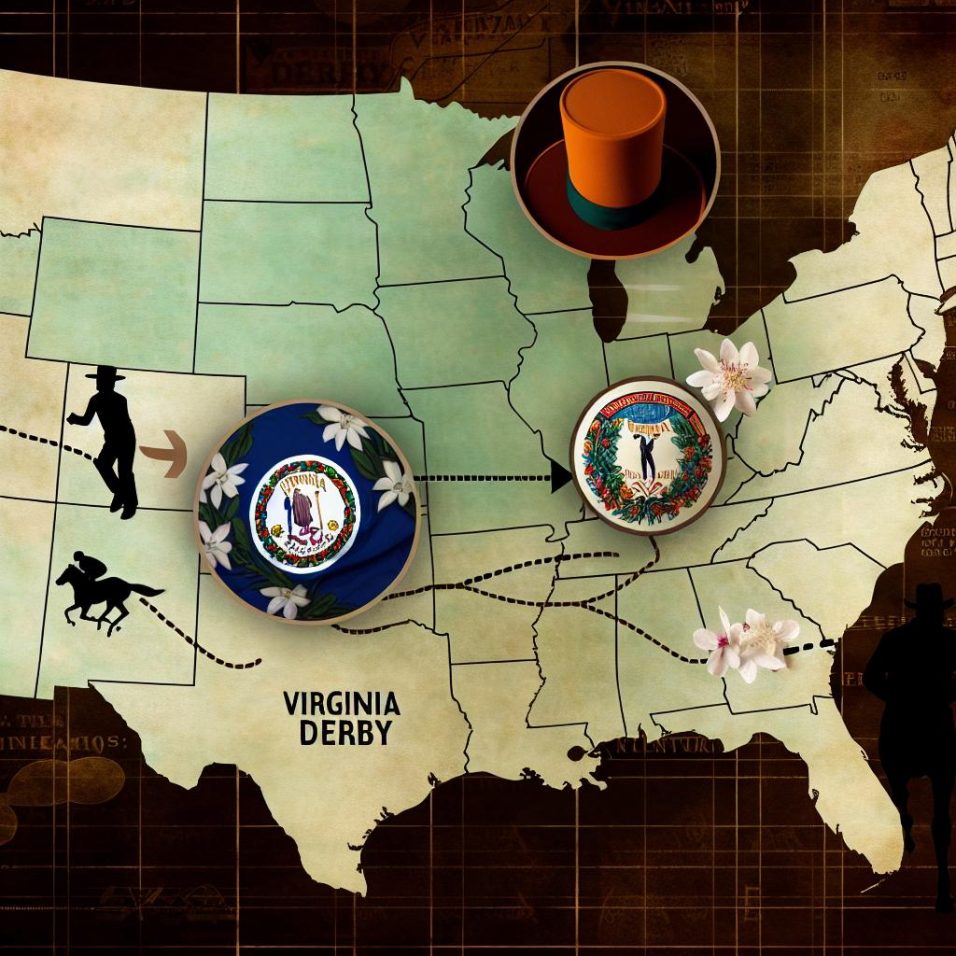The Historical Ties Between Virginia and the Kentucky Derby
The Kentucky Derby, often lauded as “The Most Exciting Two Minutes in Sports,” is a hallmark event that holds a significant place in the panorama of American sports tradition. Although its current venue is in Louisville, Kentucky, the roots of this iconic horse race stretch back to a state with a profound equestrian legacy—Virginia. The intertwining histories of Virginia and the Kentucky Derby reveal the Virginia’s substantial contribution to horse racing in America.
The Origins of Thoroughbred Racing in America
The initial seeds of thoroughbred racing in America were sown in Virginia. When English settlers began establishing colonies in the 17th century, they brought along not only their culture and way of life but also their passion for horse racing. Virginia, with its welcoming climate and varied terrain, provided an ideal environment for the breeding and training of horses. Over time, horse racing became a popular pastime, gaining prominence among the colonists.
Founding Bloodlines
One cannot discuss the heritage of the Kentucky Derby without acknowledging the impact of Virginia’s thoroughbred lineage. The importation of thoroughbred stallions from England, such as the illustrious *Diomed*, marked the beginning of the development of high-quality breeding stock within the state. *Diomed*, whose legacy as a remarkable racehorse in England preceded him, became a cornerstone in Virginia’s breeding programs. His descendants found their way to Kentucky, where they considerably influenced the genetic pool of future Derby contenders, setting a precedent that emphasized the importance of immaculate bloodlines in champion racehorses.
Influential Horse Farms
Virginia’s equine industry has been bolstered by its illustrious horse farms, known for producing top-tier racehorses that have left an indelible mark on the Kentucky Derby. One of the most eminent examples is The Meadow Farm, which served as the birthplace of the legendary Secretariat. These horse farms have consistently fostered excellence in breeding, carving out Virginia’s reputation as a pivotal contributor to the sport.
Secretariat: A Virginia Legend
The name *Secretariat* resonates with grandeur in the annals of horse racing history. Born at Virginia’s Meadow Farm in 1970, Secretariat went on to claim victory in the 1973 Kentucky Derby, not only winning but also setting an unparalleled record time. Secretariat’s triumph and the global accolades he garnered illustrate the profound impact Virginian horses have had on the Derby, fostering a legacy that endures to this day.
Breeding and Training: A Collaborative Effort
The synergy between the states of Virginia and Kentucky in the realms of thoroughbred breeding and training has been instrumental in shaping the competitive landscape of the Kentucky Derby. Horse trainers and breeders from Virginia have maintained collaborative efforts with those in Kentucky, a partnership that has consistently yielded horses of commendable stamina and speed, capable of excelling on the Derby’s grand stage.
Modern Contributions
In the present-day panorama of horse racing, Virginia continues to uphold its stature as a crucial player. The state’s horse breeding programs strive towards genetic excellence, with many horses running the Derby tracing their ancestry back to Virginia. This enduring relationship between Virginia and the Kentucky Derby ensures that the impact of Virginian horse breeding will be felt for generations to come.
The Event’s Cultural Impact
The Kentucky Derby, famed for its thrilling races and vibrant festivities, marginally owes its cultural importance to its ties with Virginia. Fans and aficionados from Virginia make the journey to Louisville annually, reinforcing the connection forged over centuries. The event’s festivities frequently pay homage to this historical bond, thereby enriching the cultural fabric of the Derby and highlighting Virginia’s pivotal role in America’s love affair with horse racing.
Educational Programs
The state of Virginia ensures the perpetuation of its rich racing heritage through various educational initiatives. These programs delve into the history and evolution of the Kentucky Derby, highlighting Virginia’s significant contributions. By integrating horse racing’s history into a broader educational context, these endeavors cultivate a comprehensive understanding of the state’s enduring legacy and its continuing influence on the sport.
Conclusion
The ties between Virginia and the Kentucky Derby go beyond a mere historical footnote; they represent a foundational pillar in the saga of American thoroughbred racing. From the establishment of early bloodlines to the achievements of legendary horses like Secretariat, Virginia has continuously shaped the narrative of the Derby. The ongoing collaboration in breeding, training, and cultural exchange ensures that Virginia’s contributions to the Kentucky Derby remain instrumental in the development of the sport. This storied connection underscores the state’s indispensable role in continuing to enrich the vibrant tapestry of American horse racing.


